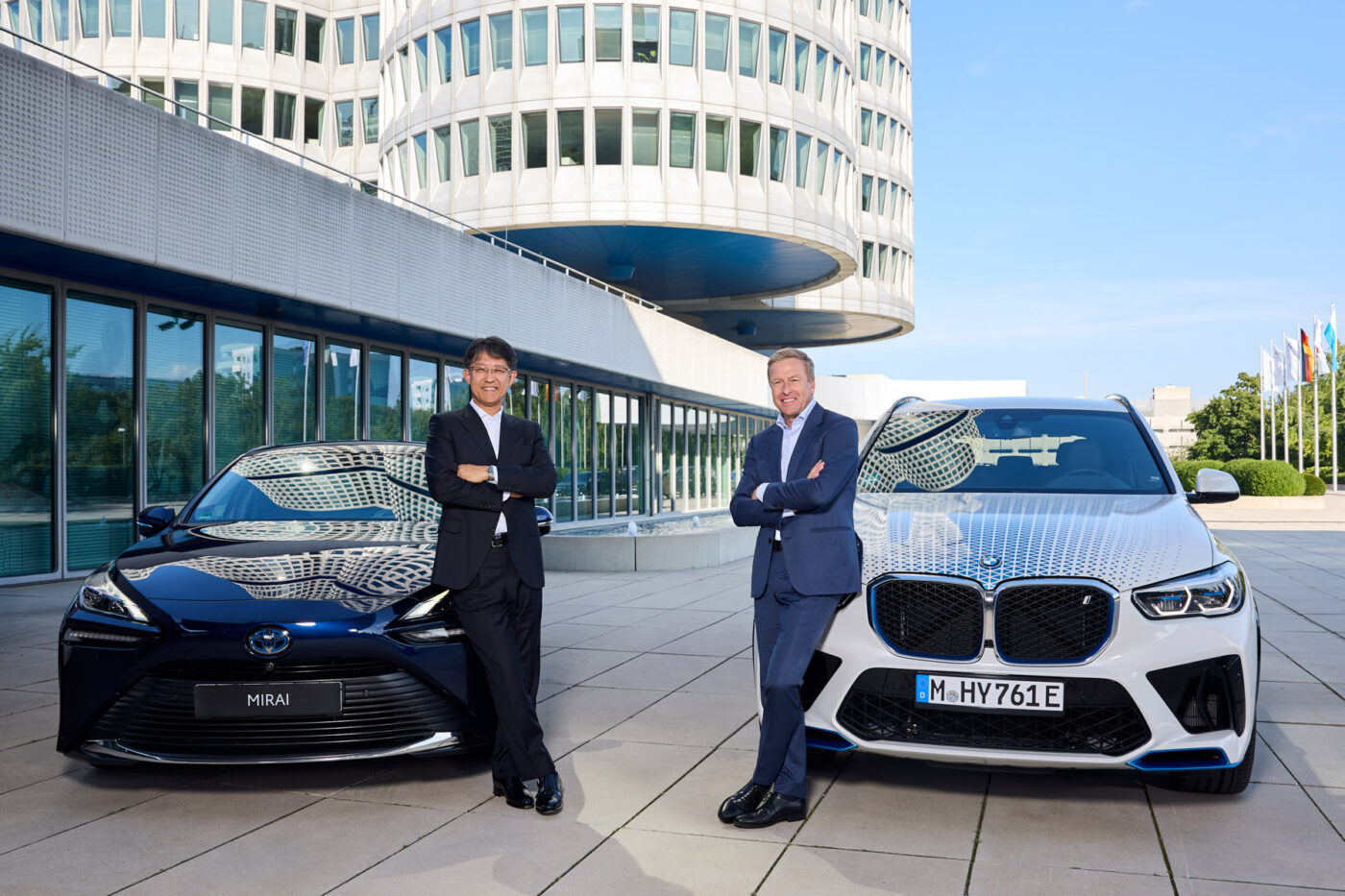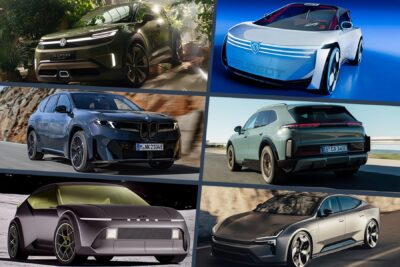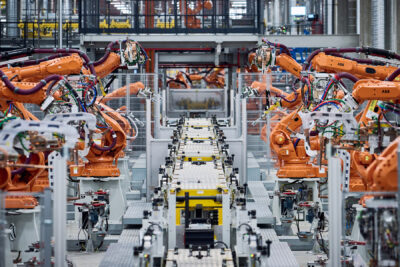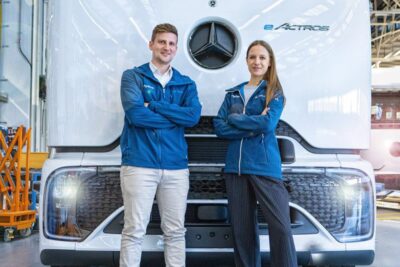BMW to launch hydrogen series model by 2028
As a first step, BMW is planning to launch its first series vehicle with a fuel cell drive in 2028 – the new third-generation fuel cell system must therefore be fully developed and ready for series production by then. Even though the intensification of the cooperation had already been leaked, key data on the BMW model and the performance data of the new fuel cell system are not yet mentioned in the press release. Instead, BMW emphasises that the series model will be “integrated into BMW’s existing portfolio.” In other words, there will be an FCEV version of an existing model, not a stand-alone model that is only offered with a fuel cell.
In view of the BMW Group’s current hydrogen activities, this is not surprising: the Munich-based company is currently testing its FCEV powertrain (with fuel cells from Toyota) in 100 iX5 Hydrogen, i.e. based on the X5 combustion model. You can read a driving report covering 800 kilometres in the iX5 Hydrogen here.
It is therefore also clear that no joint vehicle model will be developed with Toyota as part of the cooperation; the collaboration is limited to the FC system. ‘The individual FCEV models from BMW and Toyota will retain their respective brand identities and characteristics, so that customers can choose between different, manufacturer-specific FCEV options,’ the press release states.
Rather, the aim is to reduce costs – both in development and procurement. An interesting statement: “The BMW Group and the Toyota Motor Corporation will jointly develop the powertrain system for passenger vehicles, with the core fuel cell technology (the individual third-generation fuel cells) creating synergies for both commercial and passenger vehicle applications.” BMW is only interested in passenger car applications, which is logical given the Munich-based company’s model range. Toyota, on the other hand, can incorporate the findings from passenger car development into FC systems for commercial vehicles.
The declared aim is to “take this locally emission-free technology to the next level,” as BMW puts it. In addition to the pure development cooperation, both companies want to strengthen hydrogen mobility by creating demand through their products, but also by working specifically with companies that build low-emission plants for hydrogen production, distribution and refuelling. Additionally, “The BMW Group and Toyota Motor Corporation are advocating the creation of a conducive framework by governments and investors to facilitate the early-stage penetration of hydrogen mobility and ensure its economic viability. By promoting the corresponding infrastructure, they aim to establish the FCEV market as an additional pillar alongside other powertrain technologies.”
Although fuel cell cars have not yet achieved a high market share – there are production models from Toyota, Hyundai and, more recently, Honda again – BMW and Toyota believe in hydrogen fuel cells as a second mainstay alongside battery-electric mobility. This has already sounded different at Toyota in the recent past. Last autumn, Toyota’s head of technology Hiroki Nakajima stated that the Mirai, Toyota’s only series-produced passenger car model with fuel cell technology, was “not successful.” Over two generations of the Mirai, only 22,000 units have been sold worldwide. Toyota will shift the focus of its fuel cell development from passenger cars to commercial vehicles, said Nakajima.
At the end of the new phase of the hydrogen cooperation between BMW and Toyota, which has been running for over ten years, both bosses are positive about the technology. “This is a milestone in automotive history: the first-ever series production fuel cell vehicle to be offered by a global premium manufacturer. Powered by hydrogen and driven by the spirit of our cooperation, it will underscore how technological progress is shaping future mobility,” says BMW_CEO Oliver Zipse. “And it will herald an era of significant demand for fuel cell electric vehicles.”
Koji Sato, President and Member of the Board (Executive Director) of Toyota Motor Corporation, said: “We are pleased that the collaboration between BMW and Toyota has entered a new stage. In our long history of partnership, we have confirmed that BMW and Toyota share the same passion for cars and belief in “technology openness” and a “multi-pathway” approach to carbon neutrality. Based on these shared values, we will deepen our collaboration in efforts such as the joint development of next-generation fuel cell systems and the expansion of infrastructure, aiming for the realization of a hydrogen society. We will accelerate our efforts together with BMW and partners across various industries to realize a future where hydrogen energy supports society.”





0 Comments